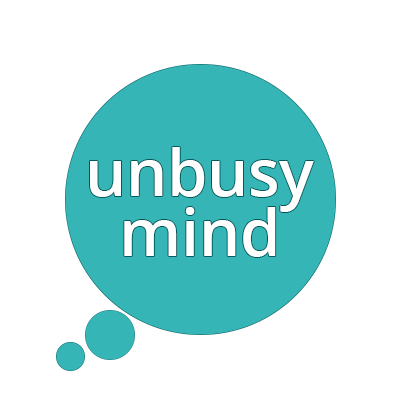
30 Jan Mindfulness vs. Medication: Can Meditation Replace Anxiety Drugs?
In a world where anxiety disorders affect over 284 million people globally, the search for effective treatments has never been more urgent. While medications like SSRIs and benzodiazepines have long been the go-to solution, mindfulness meditation is emerging as a powerful, natural alternative. But can mindfulness truly replace anxiety drugs? Let’s explore the science, the stories, and the practicalities of this growing debate.
The Science Behind Mindfulness and Anxiety
Mindfulness isn’t just a buzzword—it’s a scientifically-backed practice that rewires the brain. Research from Harvard Medical School shows that mindfulness meditation increases grey matter density in areas of the brain responsible for emotional regulation, such as the prefrontal cortex. At the same time, it reduces activity in the amygdala, the brain’s fear centre, which is often overactive in people with anxiety.
A landmark 2018 meta-analysis published in JAMA Internal Medicine found that mindfulness meditation programs had moderate evidence of improving anxiety symptoms. This isn’t just about feeling calm in the moment; it’s about creating lasting changes in how your brain responds to stress.
The Role of Medication in Anxiety Treatment
Medications like SSRIs (e.g., Prozac, Zoloft) and benzodiazepines (e.g., Xanax, Valium) are widely prescribed for anxiety. According to the World Health Organization (WHO), these drugs can be effective for short-term relief, but they come with a host of potential side effects, including dependency, drowsiness, and withdrawal symptoms.
A 2017 study in The Lancet highlighted that while medications can provide immediate relief, they often fail to address the root causes of anxiety. This has led many to seek alternative treatments, with mindfulness leading the charge.
Mindfulness vs. Medication: What Does the Research Say?
The question isn’t just whether mindfulness works—it’s how it stacks up against medication. A 2015 study in JAMA Psychiatry compared mindfulness-based stress reduction (MBSR) with the antidepressant escitalopram (Lexapro). The results? Both were equally effective in reducing anxiety symptoms, but mindfulness had one clear advantage: no side effects.
Another 2020 study in Psychotherapy and Psychosomatics found that mindfulness-based interventions were more effective than medication in preventing relapse of anxiety symptoms. This suggests that mindfulness isn’t just a Band-Aid solution—it’s a tool for long-term resilience.
The Limitations of Mindfulness
While the benefits of mindfulness are compelling, it’s not a one-size-fits-all solution. A 2017 review in PLOS ONE noted that mindfulness may not be effective for everyone, particularly those with severe anxiety disorders. In some cases, mindfulness can even increase anxiety initially, as individuals become more aware of their thoughts and emotions.
This doesn’t mean mindfulness is off the table—it just means it might work best as part of a broader treatment plan.
Combining Mindfulness and Medication
For many, the best approach isn’t an either/or choice but a combination of both. A 2021 study in Frontiers in Psychology found that combining mindfulness practices with medication led to better outcomes for patients with generalized anxiety disorder (GAD) than medication alone.
The American Psychological Association (APA) also recommends mindfulness as a complementary therapy for anxiety, especially for individuals already on medication. This integrative approach allows patients to reap the benefits of both worlds.
Practical Tips for Transitioning from Medication to Mindfulness
If you’re considering swapping your prescription for a meditation cushion, here are a few tips to keep in mind:
- Consult Your Doctor: Always speak with a healthcare professional before making any changes to your medication regimen.
- Start Small: Begin with short mindfulness sessions (5-10 minutes) and gradually increase the duration as you build consistency.
- Use Guided Resources: Apps like mindfulness.com offer beginner-friendly programs tailored to anxiety.
- Be Patient: Mindfulness is a skill that takes time to develop. Don’t expect overnight results.
Real-Life Stories: Mindfulness in Action
The science is compelling, but what about real-life experiences? A 2020 survey by Mindful.org found that 70% of participants reported reduced anxiety after incorporating mindfulness into their daily routine. Stories from mindfulness programs like MBSR further highlight its transformative potential, with many participants describing it as a “life-changing” practice.
Can Mindfulness Replace Medication?
The answer isn’t black and white. For mild to moderate anxiety, mindfulness can be just as effective as medication—without the side effects. For severe anxiety, it may work best as a complementary approach. Ultimately, the decision should be made in consultation with a healthcare professional, taking into account your unique needs and circumstances.
Key Takeaways
| Mindfulness | Medication |
| No side effects | Potential for dependency |
| Long-term benefits | Short-term relief |
| Addresses root causes | Manages symptoms |
| Requires practice | Immediate results |
Final Thoughts
Mindfulness isn’t just a trend—it’s a proven tool for managing anxiety that’s accessible to anyone, anywhere. While it may not replace medication for everyone, it offers a powerful, natural alternative that can transform how you relate to stress and anxiety.
So, why not give it a try? Start with just five minutes a day, and see where the journey takes you.
Ready to explore mindfulness for yourself? Try mindfulness for free here and take the first step toward a calmer, more centered you.



